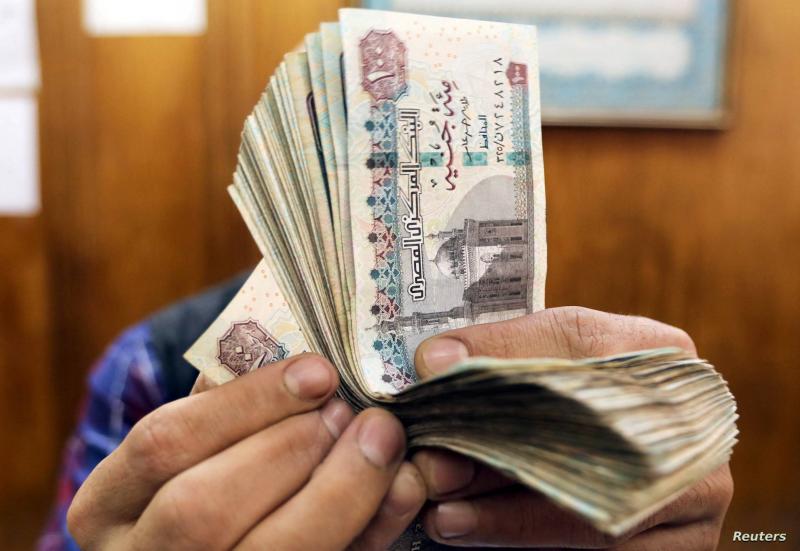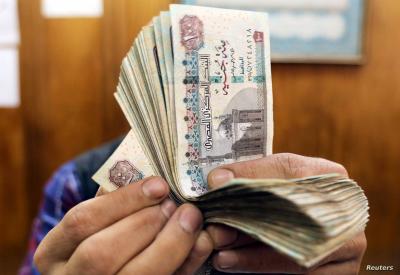It seems unlikely that Egypt will devalue its currency again before the scheduled presidential elections in December due to fears of public unrest. However, with the pound declining against the dollar in the black market, analysts are concerned that delaying this decision could have worse consequences. President Abdel Fattah el-Sisi is expected to win a new term, but inflation has risen to record levels, revealing deep-rooted economic issues due to a chronic shortage of foreign currency since early 2022. Analysts indicate that all of this points to the need for another currency devaluation, but authorities are worried that this, or the imposition of austerity measures during the election campaign, could lead to disturbances amid heightened political tensions.
The National Elections Authority announced today that the elections will take place between December 10 and 12.
In a financial support package worth three billion dollars signed by Egypt with the International Monetary Fund last December, the government agreed to allow a free-floating exchange rate for the currency and expedite the sale of state assets to narrow its budget and current account deficits. However, progress in both areas has been slow.
Since March, Cairo has maintained a fixed exchange rate for the pound against the dollar at 30.85 for buying and 30.95 for selling, even as the local currency declined in the black market to about 40 pounds to the dollar by mid-May. Last year, until March-May, the pound lost nearly half of its official value, with its decline accompanied by high waves of inflation.
James Swanston from Capital Economics noted in a memo, "The government has expressed concern that the previous depreciation of the currency and rising inflation has caused significant pain for the Egyptian people. There is no doubt that officials are worried about the risk of social unrest."
Inflation soared rapidly in the year leading up to August of this year, reaching a record high of 37.4 percent, and the money supply (M2) increased by 24 percent, indicating a greater potential devaluation of the currency. Farouk Soussa from Goldman Sachs stated, "With rising inflation, the longer Egypt delays moving towards a more flexible exchange rate system, the greater the decline from current levels of the pound."
The International Monetary Fund was supposed to disburse payments biannually over 46 months but postponed the payment due in June amid reports of dissatisfaction with Egypt's progress. Swanston wrote in the memo, "The obvious risk is that all of this leads to further delays in the reviews of the IMF agreement with Egypt, increasing downward pressure on the pound."
The Institute of International Finance reported this month that the value of the pound is overvalued by about 10 percent, expecting this percentage to rise to nearly 20 percent by the end of 2024. The institute added that both "rising inflation and decreasing inflation among trading partners and the fixed exchange rate" could contribute to pressures on the pound.
Carla Slim from Standard Chartered Bank noted that delaying the devaluation of the pound could soften the exchange rate adjustment, provided the government proceeds with asset sales. She added, "I believe that delaying the currency devaluation could actually mean a less severe adjustment because authorities would have allowed more time for dollar inflows from asset sales, resulting in further narrowing of the net foreign liabilities position."
Bankers, importers, and analysts report that banks and importing entities have resorted to new tricks to circumvent restrictions on opening letters of credit or preparing cash payments for imports in an attempt to cope with the foreign currency shortage. Economists state that the decrease in the number of factories and other inputs has led to slowed growth. Exporters have begun collaborating with importers to purchase goods, leveraging the foreign currency available from selling products abroad.
Moreover, importers are buying dollars with the Egyptian pound in the black market and then selling them back to certain banks at the official exchange rate to open letters of credit at the transaction's pound value while adding a premium ranging from 10 to 20 percent.
Nonetheless, the political situation seems to be overshadowing the economy at the moment, with no official discussions about currency devaluation as the country approaches the presidential elections.




